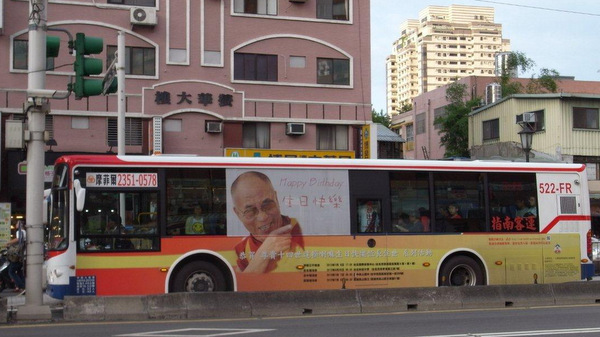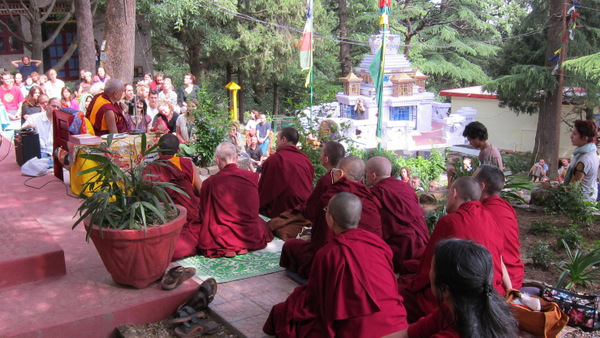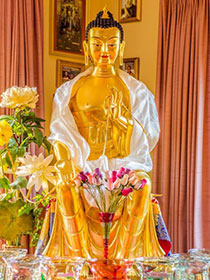FPMT News
Our main aggregated news feed contains articles from all of our news categories.
Narrow your results
Dharma in the Workplace
Is it possible to be a Buddhist and compete in your job? Or spread the Dharma in the workplace? Depending on your field, your motivation and your karma, it may not be easy. Or it may. From Mandala September-November 2002 ... Read more »Sera Je Food Fund Videos
June 2012: We are delighted to present you with new videos which help illustrate the many benefits of this project. “A Brief Introduction to the Sera Je Food Fund” is a short introduction and overview of the project. “The Making ... Read more »Sera Je Food Fund’s New Videos!
June 2012: We are delighted to present you with new videos which help illustrate the many benefits of this project. “A Brief Introduction to the Sera Je Food Fund” is a short introduction and overview of the project. “The Making ... Read more »Six Months of Food Offered
June 2012: FPMT was able to send US$115,000 to Sera Je Monastery. This contribution covers the next six months’ worth of meals for all 2,600 monks currently studying at Sera Je. Thank you to all the kind benefactors who support ... Read more »Rejoice for the Wonderful Food Fund! A Devotional Tear Dropped in the Rice Bowl
By Geshe Thubten Jinpa Received May 2012: The sun is at its brightest at 9 a.m., but a soft breeze blows making the morning chilly. Hundreds of monks in their maroon robes begin to flow in, clutching a square cushion ... Read more »Dried Food for Monks over Losar
February 2012: Dried food was distributed to about 2,550 of our Sera Je monks! No, not to celebrate Valentine’s Day but because our main kitchen will be closed during the coming two weeks Losar (Tibetan New Year) holidays. Each monk ... Read more »Sera Je Food Fund’s Amazing New Bread-Making Machine
August 2011: Cherok Lama generously sponsored a new bread-making machine for the Sera Je Food Fund kitchen. This was offered on the occasion of his Rik-Chung ceremony in August of last year. This new machine has reduced the need for ... Read more »Spirituality and Work: Antonyms or Synonyms?
Is work necessarily mundane? Is there a way to make it sacred? Psychologist Karuna Cayton explores the relationship between work and spirituality. From Mandala June-July 2005.
His Holiness the Dalai Lama Buses Around Taiwan
FPMT News Around the World The smiling face of His Holiness the Dalai Lama is traveling around Taiwan on the sides of 30 buses. Seeking to raise the profile of Tibetan Buddhism and His Holiness in Taiwan, advertisements have been ... Read more »








